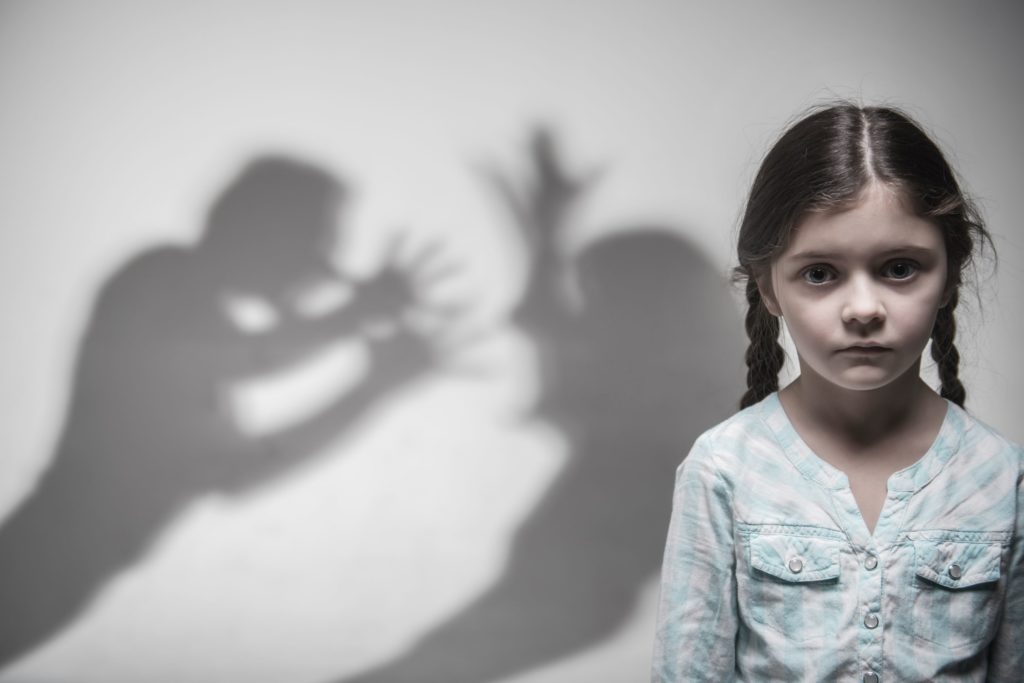WHAT’S CONSIDERED DOMESTIC VIOLENCE IN NEVADA?
December 28, 2021
Nevada routinely ranks in the top five states for domestic violence (“DV”) in the nation. For that reason, the state’ legislature has crafted tough Nevada domestic violence laws. As a result, law enforcement and the courts are generally not very lenient on individuals convicted of domestic violence offenses. If you’re facing domestic violence charges in Nevada, it’s in your best interest to consult with a highly skilled and proven attorney as soon as possible.
The Definition Of Domestic Violence
Domestic violence is a broad term that encompasses many types of abuse perpetrated by one person against another with whom they share an intimate relationship. That can include a family member, spouse, roommate, or dating partner.
According to the Nevada Attorney General’s Office, the four most common types of domestic violence include:
- Physical Abuse
- Verbal Abuse
- Sexual Abuse
- Emotional Abuse
However, acts that constitute domestic violence can include many types of criminal offenses such as battery, assault, coercion, false imprisonment, etc., all of which can lead to possible fines and jail time if convicted.
Can Domestic Violence Charges Be Dropped?
Potentially, yes. The prosecution can drop domestic violence charges but dropping these types of charges is not as easy as it is for other criminal offenses. Why? Because the prosecution is often under societal pressure to bring these types of cases.
Generally, Nevada prosecutors are reluctant to drop the charges in cases where they suspect the victim wants to vacate their accusation because:
- They are afraid of the defendant.
- They believe they will be retaliated against if they continue to pursue the charges.
- They are ashamed to be associated with domestic violence.
- They are fearful of losing the defendant’s financial support.
However, the prosecution may consider dropping domestic violence charges for other reasons such as lack of evidence.
What Happens If I’m Served A Protective Order?
Victims of domestic abuse must file the correct paperwork with the Family Court to obtain a domestic violence injunction (protective order). A domestic violence protective order comes in the following two forms:
- Temporary Order of Protection – All protective orders begin with the issuance of a temporary order of protection that remains in effect for 30 days (beginning on the date of service). If the order expires or isn’t served, it’s automatically ended unless another order is applied for and approved.
- Extended Order of Protection – An extended domestic violence protective order must be applied for while the temporary order is still active. If approved, the domestic violence injunction can remain in place for up to one year.
Depending on the details of the case, a domestic violence protective order can keep you from seeing your children, living in your home, or being present at many other familiar places where you once frequented.
What Are The Penalties For Violating An Order Of Protection?
According to NRS 33.100, violating a temporary protective order is a misdemeanor crime. Violating an extended order of protection can lead to misdemeanor, gross misdemeanor, or felony charges depending on the number of previous violations.
Temporary Order & First-Time Extended Protective Order Violation Penalties
- Misdemeanor offense
- Maximum $1K in fines
- Possible jail sentence up to six months
Penalties for Second-Time Violation of Extended Protective Order
- Gross misdemeanor offense
- Maximum $2K in fines
- Possible jail sentence for up to 365 days
Penalties For Three or More Violations of Extended Protective Order
- Category C felony offense
- Maximum $10K in fines
- Minimum 1 year, Maximum five years in a state prison
It’s important to note that the consequences for violating a domestic violence order of protection are in addition to domestic violence jail time in Nevada. Further, each instance of violating a protective order can be charged as a separate offense.
Will I Still Be Able To See My Children If I’m Accused Of Domestic Violence?

Many individuals charged with domestic abuse are concerned about the penalties for domestic violence, children interaction, and their freedom. Depending on the facts of the case, domestic violence allegations can drastically change the way you interact with your children. In some cases, defendants may permanently lose the right to spend time with their children, and in other cases, parental rights are regained after some time passes.
With that in mind, If you’re a parent and you’ve been charged with domestic abuse, it’s in your best interest to consult with a proven domestic violence criminal defense lawyer as soon as possible.
What’s Considered Child Neglect In Nevada?
While both types of charges are taken very seriously, child neglect and child abuse in Nevada are two separate offenses. Generally, child neglect occurs when a parent or guardian fails to give their child appropriate nourishment, housing, supervision, healthcare, or abandons their child.
The major difference between child neglect and child abuse in Nevada is that abuse requires the parent to intentionally perpetrate or allow physical or mental harm onto their children. Whereas child neglect charges can be filed even when a parent isn’t intentionally causing or allowing harm.
The penalties for child neglect depend on the severity of harm inflicted upon the child. For example, suppose the neglect does not amount to any physical or mental harm (and there is no prior record of neglect). In that case, defendants face Category B felony charges resulting in up to six years imprisonment. If the neglect does cause physical or mental harm, it’s also a Category B felony, resulting in up to 20 years in prison if convicted.
Additionally, individuals convicted of child neglect (not resulting in physical or mental harm) but who have a previous conviction for neglect face felony charges and up to 15 years in prison.
What Can I Do If I’m Being Falsely Accused Of Domestic Abuse?
Being falsely accused of domestic violence can be devastating. It’s more common than you might think. Often, in the midst of a divorce, allegations of abuse can be thrown around to gain leverage. If you’ve been falsely accused of domestic abuse, it’s recommended that you quickly consult with a proven lawyer for domestic violence charges in Las Vegas. A good attorney can investigate the facts of your case, ensure your rights are protected, and develop a solid criminal defense strategy to counteract domestic violence false accusations.
Can I Be Charged With DV Even If There Were No Physical Injuries?
Yes. According to domestic violence laws in Nevada, law enforcement can charge an individual with domestic violence offenses even if no physical injuries are present. That’s because domestic violence includes many types of offenses that don’t always cause apparent injuries. Common examples can include pushing, slapping, tugging hair, emotional abuse, coercion, pandering (pimping), false imprisonment, and more.
What Are The Defenses To Domestic Violence Charges?
Every domestic violence case is different. However, depending on the circumstances, there may be many domestic violence defenses available. The most common domestic violence defenses include the following:

- Mistaken identity – An intimate partner suffers physical or mental harm but from another person.
- False accusations – A partner, family member, housemate, etc., lies about domestic violence perpetrated against them in order to damage your reputation.
- Accidental contact resulting in physical injuries – You admit that you injured an intimate partner but maintain that it resulted from an accident. For example, you accidentally drop a hammer on an intimate partner’s foot.
- Self-defense – You used physical force to defend yourself from an intimate partner attempting to attack you.
- Lack of evidence to sustain domestic violence charges – The prosecutor does not have enough evidence to obtain a conviction in your case.
- Investigative errors committed by the police – The police engage in an illegal search and seizure in order to obtain evidence against you.
A successful domestic violence defense hinges on your ability to work closely with your attorney and to be honest with your lawyer about the details of your situation. If you’ve been accused of domestic violence, hiring a proven lawyer offers you the best chance for dropped or reduced charges. Attempting to handle the charges on your own is more likely to lead to an unfavorable outcome in court.
How Long Will My Domestic Violence Case Take To Complete?
Due to the sensitive nature of domestic violence cases, it can take months or even as long as a year for your case to conclude. Generally, the facts of the case, the seriousness of the harm caused, criminal history, and whether children are involved all play a crucial role in the timeline of domestic violence cases.
Further, the charges filed against you (misdemeanor or felony) also contribute to how long a domestic violence case takes to complete. It’s important to note that a domestic violence case is not “closed” after a judge imposes sentencing. Rather, the case typically remains open until the defendant completes every requirement of their penalty (i.e., fines, jail time, probation, community service, etc.).
Working with a domestic violence attorney can help ensure that your case goes as quickly and smoothly as possible. That’s because the best domestic violence lawyer in Las Vegas knows how to avoid costly mistakes which often delay domestic violence cases.
If The Police Took My Guns After Arresting Me For DV, Can I Get My Guns Back?
There is a clear link between domestic violence and gun control in the United States. With that in mind, individuals convicted of domestic violence offenses are indefinitely prohibited from possessing or owning a firearm in Nevada.
However, if you’re charged with domestic abuse, there is a possibility to retain your guns and gun rights while your charges are still pending. Your domestic violence attorney can file a motion with the court to restore your guns and rights. Although, you must provide the judge with a valid reason for your need to have your guns back before your trial concludes.
Do LGBTQ People Experience Domestic Violence?
Absolutely. Domestic violence occurs in every type of relationship regardless of race, sexual orientation, identity, net worth, religion, or other factors. Unfortunately, many studies on the prevalence of domestic violence neglect to consider LGBTQ exposure to domestic violence. Take a look at a few notable LGBTQ domestic violence statistics below:
- Nearly 44% of lesbian women and more than 60% of bisexual women have been victims of sexual assault, violent actions, or stalking by an intimate partner.
- 26% of men who identify as gay have been subjected to sexual assault, physical violence, or stalking by an intimate partner. Additionally, more than 37% of bisexual men have experienced the same.
- Roughly a quarter of gay men who experience “near lethal” physical violence perpetrated by an intimate partner neglect to contact law enforcement.
- According to a 2015 U.S. Transgender Survey, roughly 47% of people who identify as transgender have experienced sexual assault at some point in their life.
These are sobering statistics that demonstrate that domestic abuse is not limited to just straight people.

Author: Michael Humphreys Esq
Michael Humphreys Esq. is an accomplished former federal prosecutor with a lengthy career in the United States Department of Justice. There is no federal criminal case too big or small that he cannot handle.
